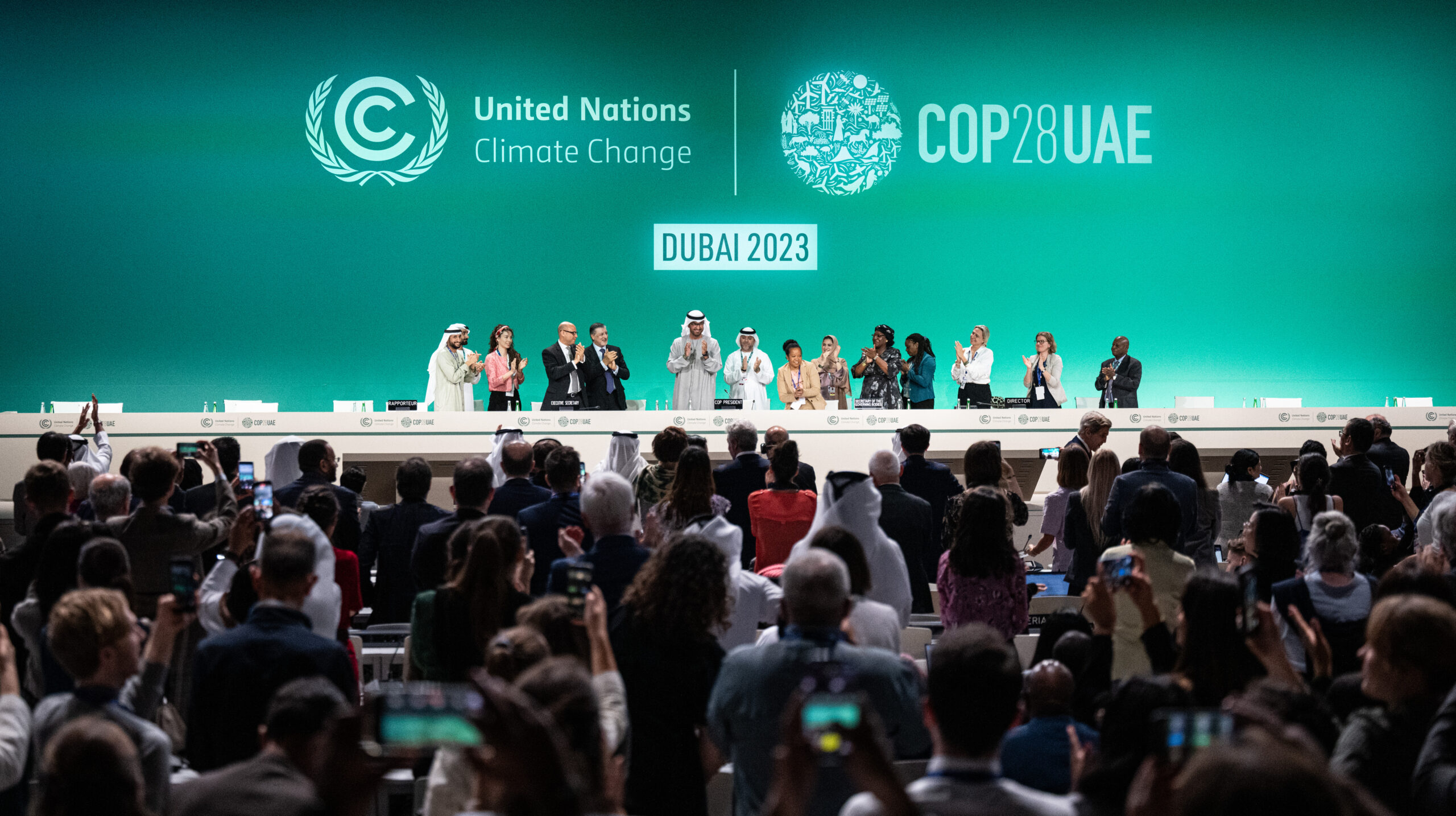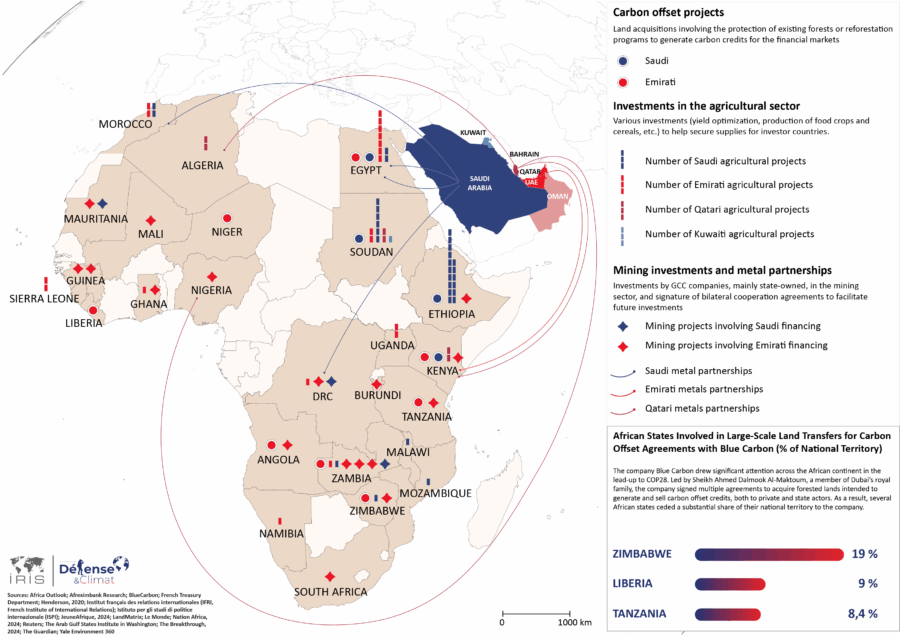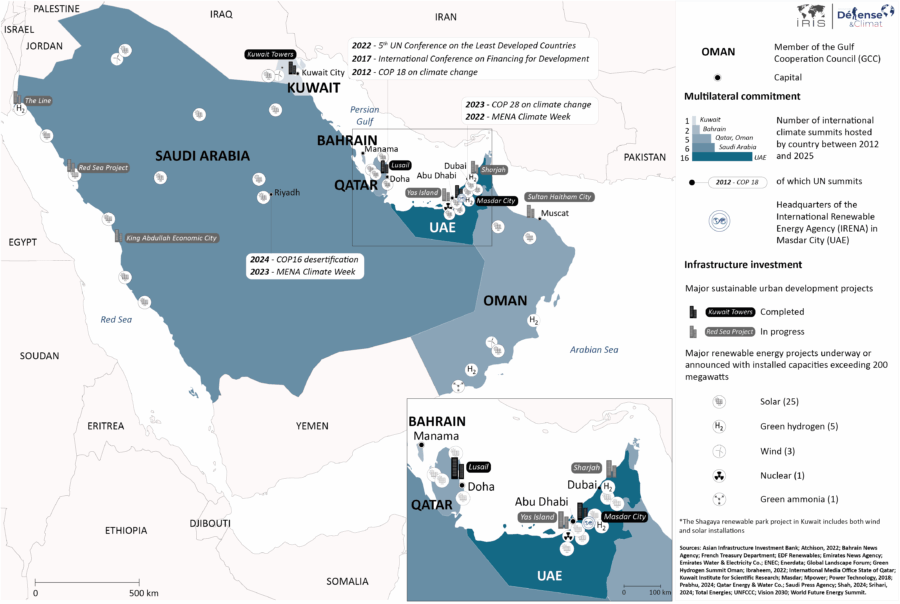Climate Diplomacy of the Gulf Monarchies: Leverage and Power Tool
This note from Observatoire Défense et Climat examines the climate diplomacy of the Gulf monarchies as a lever of influence and a tool of power. It looks at the Gulf Cooperation Council states’ exposure to climate risks and their responses (I), the commitment of these states to global climate multilateralism, highlighting this multilateralism as an area of influence for their climate strategies (II), and the link between climate issues and the foreign policy of the Gulf States on the African continent, highlighting the logics of environmental cooperation as much as influence (III). Finally, on the basis of these analyses, the note proposes three prospective scenarios, accompanied by strategic recommendations for the Ministry of the Armed Forces (IV).

For several decades now, the member states of the Gulf Cooperation Council (GCC) – Bahrain, Kuwait, Oman, Qatar, Saudi Arabia and the United Arab Emirates (U.A.E.) – have been increasingly involved in climate change issues at national, regional and international levels. As early as the 1980s, some of these states began to address environmental issues on a national scale. However, it was only at the end of the 2000s that they stepped up their efforts to take climate change into account, in line with their ambitions for economic diversification and energy diplomacy. These initiatives take different forms in different countries, some developing specific public policies and integrating these concerns into their strategic visions in a more pronounced way than others. Since the mid-2010s, the Gulf monarchies have stepped up their presence on the international stage, notably through growing participation in the multilateral climate system, by becoming actively involved in global climate conferences such as the Conferences of the Parties (COPs).
This growing involvement of the GCC states in climate issues highlights two major components. Firstly, it reflects a growing awareness of the risks associated with climate change, whether physical – the Arabian Peninsula being particularly vulnerable to such changes – or social and economic. Secondly, it reveals a recognition of climate as a lever of foreign policy and influence, likely to support the various power projection strategies of the GCC states and extend their position on the international stage despite the various disruptions induced by climate change.
Map 1 : Climate diplomacy of Gulf monarchies
Map 2 : The Gulf Monarchies’ Efforts to Secure Africa’s (Natural) Resources







